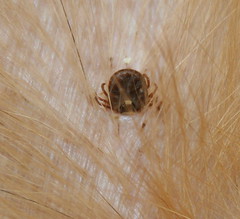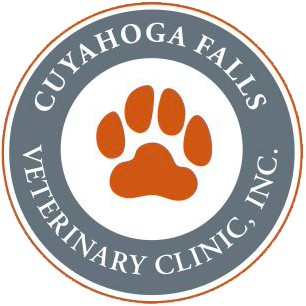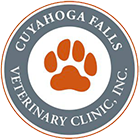We love taking care of puppies and kittens in the early weeks and months of life! They so cute, so playful and despite the occasional trouble they get into, the pleasure they bring into our homes is immeasurable. It’s so important to make sure they’re as healthy as they can be and to make sure they’re protected against worrisome and life-threatening diseases that are so preventable. That’s why we set up a vaccine series and protocol for puppies and kittens, so we can guide them through the early stages of life (and beyond) by reducing or eliminating the risk of dangerous, contagious diseases.
We’ve welcomed the thoughts of Ernie Ward, DVM, to our blog before, and he’s got some good things to share about vaccines. The following is taken from his article, Vaccination Nation, that appeared in volume 6 of fetch! magazine. In part two, we’ll cover puppies (kittens were in part one). Here goes!
vaccination nation: Are we over-vaccinating our pets?
by dr. ernie ward
Perhaps no other medical advancement has saved more lives than vaccinations. From the time Edward Jenner discovered a vaccine for smallpox in 1796, the endeavor to prevent disease through vaccination has resulted in scores of diseases being reduced to mere memories. For dogs and cats, once prevalent conditions such as canine distemper, parvovirus and feline panleukopenia are now largely unknown by modern pet owners. Of course with each great advancement comes great responsibility. As the race to create more and more vaccines heated up, some of us began to raise a simple question: Are we over-vaccinating our pets?
The past decade has witnessed a tremendous overhaul and rethinking of vaccination strategies from “vaccinate every pet with everything” to “vaccinate every pet with what it needs.” The vaccines your new puppy or kitten needs should be based on the disease risks of where you live, whether your pet will live indoors, outdoors or a combination and how much exposure to other pets they’re likely to encounter. For the past decade I’ve been calling this “individualized care.” Vaccines, diet, exercise and nutritional supplements should be based on each individual’s lifestyle rather than “we’ve got a vaccine” or “here’s a good food.” Medicine has progressed beyond a “one size fits all” approach to “what’s your size?” So let’s get suited up and learn about the vaccines every puppy or kitten should have.
Why All Those Shots?
Before we discuss the individual vaccines, the question many new pet owners have is why does a puppy or kitten need so many? The answer lies within the mother’s first milk or colostrum. Colostrum is secreted during the first few meals just after birth and is a substance rich in protective antibodies from the mother, maternal antibodies. Because a fledgling newborn’s immune system hasn’t had time to mature, the mother confers protection for the first several weeks until the babies can fend for themselves. The problem is we never know how long the maternal antibodies last. In most puppies and kittens these protective proteins may last six to eight weeks while in others they may last up to 14 to 16 weeks.
If you administer a vaccine to a young pet with high numbers of maternal antibodies, these antibodies may interfere with the body’s ability to make its own protection. The trick to successful puppy- and kitten-hood vaccinations is timing. We want to administer a vaccine when the maternal antibodies are low enough to stimulate a response but not so low to put a pet at risk. To accomplish this, we vaccinate every three to four weeks starting at around six weeks of age and ending by about 16 weeks. A typical vaccine schedule for most puppies and kittens will be six, 10 and 14 weeks of age or eight, 12, and 16 weeks. Most pets will be vaccinated again at one year and then every one-to-three years for most diseases.
 |
Vaccines for Every Puppy
Canine Parvovirus “Parvo,” as it’s commonly called, is a highly-contagious disease of young puppies that causes bloody diarrhea, vomiting, blood-borne infection and often death. All puppies should receive at least three vaccines between the ages of six and 16 weeks.
Canine Distemper Virus Distemper is a devastating airborne disease of growing puppies that causes copious discharge from the eyes and nose, pneumonia and neurological disorders. The vaccine was developed in 1950 and is recommended for all puppies. Three vaccines three to four weeks apart between the ages of six and 16 weeks are given.
Canine Adenovirus-1 CAV-1 or Infectious Canine Hepatitis is a terrible disease you’re glad you’ve never encountered. All puppies should be vaccinated against CAV-1 every three to four weeks from ages six to 16 weeks.
Rabies Stephen King probably educated more of us about rabies in his classic book and film “Cujo.” Although Cujo’s owner loves him dearly, he never bothers to have him vaccinated against rabies. While chasing a rabbit, Cujo sticks his nose in a hole, is bitten by a rabid bat and a horror story ensues. If you don’t want a “Cujo” in your house, simply have them vaccinated against rabies at three to four months of age and then every one to three years based on your local ordinances (it’s every three years in most places [including Summit County, after a dog’s first annual dose]).
Vaccines for Some Puppies
Parainfluenza and Bordetella bronchiseptica Often referred to as “kennel cough.” If your puppy is boarded, visits the groomer, plays at a dog park, attends training or simply encounters dogs during your walks, I recommend you protect them against this highly-infectious respiratory infection. Most dogs will be vaccinated every six to 12 months based on their level of risk.
Lyme disease If you live in an area with large numbers of ticks or in a known Lyme disease area, your puppy should be protected against this disease. Most puppies should be given the vaccine at nine to 12 weeks of age and a follow-up dose two to four weeks later. Annual re-vaccination is needed for at-risk dogs.
|
Leptospirosis “Lepto” is a serious disease affecting the kidneys and liver. Dogs usually contract leptospirosis by drinking water contaminated by infected wildlife. Because this diseased can be transmitted from dogs to humans, if you live in an area with Leptospirosis – vaccinate your puppy. Puppies should receive their first vaccine at 12 weeks of age with a booster at 14 to 16 weeks. Annual vaccination is recommend- ed for those living in regions with this highly-communicable disease.
Vaccines your puppy can skip
While there are many vaccines currently available, some are better skipped. The most common puppy vaccines you should say “no” to are canine coronavirus and Giardia. Porphyromonas sp., a dental disease vaccine, and rattlesnake vaccine are two you need to talk to your vet about. While these vaccines may provide some benefit, we don’t have enough data to endorse their wide-spread usage at this point.
Vaccines play an important role in keeping your newest family member safe and healthy. The great news is that veterinarians and pet owners are recognizing that each individual pet should be treated as such – individually. Don’t be afraid to ask why your pet’s doctor is recommending a vaccine, test or treatment. Good veterinarians welcome your interest and are always eager to explain. Avoid “vaccinating for vaccination’s sake” and insist that your pet only receive “what it needs, when it needs it.” By working closely with your veterinarian, you can ensure your new addition starts life in a healthy direction.
Written by Dr. Ernie Ward
Originally written for fetch! magazine, a Petplan pet insurance magazine. Learn more about Petplan at www.gopetplan.com
Reproduced with permission from the author and editor.
Dr. Ward wrote this column to apply across the nation, so I want to take some time and address the category of Vaccines for Some Puppies with regard to our specific area of the country: northeast Ohio.
 |
Upper respiratory diseases are quite common in our area, and many of our patients do participate in the social activities that Dr. Ward mentioned. Because of this, protecting against Parainfluenza and Bordetella is the right thing to do for most of our patients.
Leptospirosis has been documented in Summit County in many, many cases. Our dogs in this area are most certainly at risk from wildlife and unprotected dogs. Because of this, Leptosiprosis is part of our core protocol for our canine patients.
There are no rattlesnakes in northeast Ohio, and we don’t even stock rattlesnake vaccine. If you are planning on traveling to an area where rattlesnakes are present, we can talk about options that may be available to you.
 |
Lyme disease is not yet prevalent in the area, but the trends suggest that it might be soon. As ticks increase in number in our area, Lyme disease will be more of a local concern. The good news is that it won’t take us by surprise. We currently use the 3DX Heartworm Test when we take blood samples from our adult dog patients for heartworm testing. One of the diseases that this test looks for is Lyme disease, so if/when it begins to emerge, we’ll spot it. (As an aside, if you travel with your dog to areas of the country where Lyme disease is more of a problem, make sure we know about that so we can provide your dog with the best immunity and care possible, including Lyme vaccine.)
Porphyromonas vaccine, for reasons that are very disappointing to us, has been taken off the market. If you are interested in speaking about the specifics of Porphyromonas vaccine no longer being available, don’t hesitate to ask one of our doctors.
To summarize, we stand side-by-side with Dr. Ward in suggesting that your puppy receive “what it needs, when it needs it.” If you’ve just brought a puppy into your home and life, give us a call at 330-929-3223 so we can help your puppy get started on a long, happy, healthy life with you.



The Cuyahoga Falls Veterinary Clinic | Animal Wellness | Medical Services | Pet Services
[…] as it is critical to preparing your puppy for a healthy life. We’ve addressed the topic of which vaccines are needed. You can visit that post for the specifics, but the take-home message for vaccines is: protect your […]